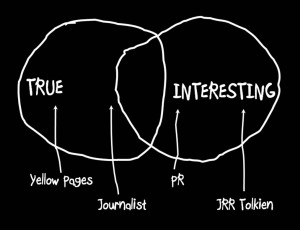From RS Guthrie's blog, Rob on Writing.
I read a very interesting post yesterday (“interesting” being defined as “for anyone with enough of a geek/time combination to find a full-length blog on word meanings an enjoyable way to spend a few minutes. It’s called 10 Words That You’ve Probably Been Misusing and it was written by Tyler Vendetti. Now before I get into the meat of this blog, I want to make a few observations about the blog on which Tyler is a contributor (HelloGiggles) and about a few sundry items pertaining to said blog.
Tyler’s blog has 200,000 likes and has been tweeted 2,897 times (as of this moment). It also has about 20 pages of comments. Maybe 50. And comments on comments. And comments on pages that were linked-to in comments, referringback to Tyler’s post.
Tyler Vendetti is my new hero. That’s a lot of blog publicity. And she’s just one of the HG contributors. Plus her last name sounds like a cross between a crime syndicate and a guy bent on revenging the gruesome death of his wife and children.
 I must be doing something wrong with this blogging thing. Not interesting enough or too harpy or maybe it smells like bad fish. As I approach my 200th post in just over a year and a half, I am left reticent about how well-spent is my time “blogging”? If 200,000 people were bent on my opinion or almost 3,000 people wanted all their Twitter followers to check out what brilliance had just flew from my fingertips well, yeah, of course it would be worth my time and effort.
I must be doing something wrong with this blogging thing. Not interesting enough or too harpy or maybe it smells like bad fish. As I approach my 200th post in just over a year and a half, I am left reticent about how well-spent is my time “blogging”? If 200,000 people were bent on my opinion or almost 3,000 people wanted all their Twitter followers to check out what brilliance had just flew from my fingertips well, yeah, of course it would be worth my time and effort.
Did I mention Tyler’s just in college right now? Doesn’t matter. I blog for myself. And for those salaciously witty few who get it. The craftily obfuscated humor, I mean. My readers. All six of ya. So I’m going to do what I do best; I’m going to climb the rungs of that soap box and give it to you straight, no chaser (apologies to the great a capella group).
Here are the ten words that Tyler says we all misuse/misunderstand (I’m going back to the proper writing form of spelling numbers instead of using them—something about getting all grammarly [<~~~MY word, dammit, and I think it's a good one] makes me want to be as technically correct as possible, even though it obviously doesn’t stop me from making up my own language):
(The list below is copied from Tyler’s blog but I snipped her snappy chatter in-between numbers so that I would have space for my own snappy witticisms afterword.)
1) Travesty
What you may think it means: a tragedy, an unfortunate event
What it actually means: a mockery; a parody
2) Ironic
What you may think it means: a funny coincidence
What it actually means: contrary to what you might expect
3) Peruse
What you may think it means: to skim or glance over something
What it actually means: to review something carefully/in-depth
4) Bemused
What you may think it means: amused
What it actually means: confused
5) Compelled
What you may think it means: to willingly do something, to feel like you need to do something
What it actually means: to be forced to do something (willingly or unwillingly)
6) Nauseous
What you may think it means: to feel sick
What it actually means: to cause nausea
7) Conversate
What you may think it means: to hold a conversation
What it actually means: ABSOLUTELY NOTHING
8) Redundant
What you may think it means: repetitive
What it actually means: superfluous, able to be cut out
9) Enormity
What you may think it means: enormousness
What it actually means: extreme evil
10) Terrific
What you may think it means: awesome, fantastic
What it actually means: causing terror
 Okay, it made for a pretty damned interesting blog, I have to admit. Here was the comment I made (preceded by a little dictionary research of my own and never to be seen by Tyler nor anyone else because it’s literally already suffocated in the pile of comments both before and following it):
Okay, it made for a pretty damned interesting blog, I have to admit. Here was the comment I made (preceded by a little dictionary research of my own and never to be seen by Tyler nor anyone else because it’s literally already suffocated in the pile of comments both before and following it):
“Many of the words you chose mean exactly what you/we “thought” they meant. AND they mean what many of us didn’t know. It’s both; you’re simply using ONE of multiple usages of the word. That’s not the same thing as a word NOT meaning what you thought it did. Cute post, but you should have chosen fewer (more correct) words or written it under “Other Meanings You Did NOT Know”. Nice work with “conversate”, however. That’s one that should make all our skin crawl.
Ex. Redundant (and this is def #1): characterized by verbosity or unnecessary repetition in expressing ideas; prolix: a redundant style.
Ex. Enormity: #3: greatness of size, scope, extent, or influence; immensity
Ex. Peruse: #2: to look over or through in a casual or cursory manner”
Ex. Enormity: #3: greatness of size, scope, extent, or influence; immensity
Ex. Peruse: #2: to look over or through in a casual or cursory manner”
 I appreciate Tyler’s erudite blog and her ability to both entertain, entice, enamor, elongate, eradicate, electrify, ease, erase, and yes, even enrage. It really was (almost) a fun as trying to come up with so many “e” words a moment ago. Let’s face it; this is what blogs ARE. They are honeypots, hoping to garner enough attention that the writer lands successfully somewhere between “no one’s ever heard of ya, kid” and “twenty-year-old cutie slain by unusually articulate blog-stalker”.
I appreciate Tyler’s erudite blog and her ability to both entertain, entice, enamor, elongate, eradicate, electrify, ease, erase, and yes, even enrage. It really was (almost) a fun as trying to come up with so many “e” words a moment ago. Let’s face it; this is what blogs ARE. They are honeypots, hoping to garner enough attention that the writer lands successfully somewhere between “no one’s ever heard of ya, kid” and “twenty-year-old cutie slain by unusually articulate blog-stalker”.
Do we try to educate? (Another “e” word I spared you, at least until now.) Yes, of course. I wouldn’t have titled my blog the way I did if all I ever intended to do was rage against the machine. But do people ever really learn anything? As I poured through (seven) pages of comments to find my own, I perused a few dozen along the way, and I’d say the majority were pretty nasty.
Don’t FUCK wid my bidness, and don’t you MONKEY around wit my GRAMMAR.
 No, seriously, one girl called Tyler’s blog “less interesting than a wet bag of potato chips.” Although a pretty damned funny retort, that comment was completely uncalled for (do any comments actually receive a call?). It really is a great blog, but in all seriousness, I could notbelieve the pages, and pages, and pages of comments and conversates
No, seriously, one girl called Tyler’s blog “less interesting than a wet bag of potato chips.” Although a pretty damned funny retort, that comment was completely uncalled for (do any comments actually receive a call?). It really is a great blog, but in all seriousness, I could notbelieve the pages, and pages, and pages of comments and conversates
If she reads through that plethora [<~~overused word; means just what we think it does] of comments, my guess is she’s already by now been institutionalized. No one—and I mean NO ONE—least of all a bright, joyful, ne’er say ne’er, Mary Poppinsesque college student should ever bear witness to the hideousness of a true cross-section of the World Public like that. It’s terrific. Or terrifying.
Or both, if you believe that little college dipshit’s blog.
Just kidding, Tyler.
But don’t ever fuck wid my grammar again, bitch.
~~~~~~~~~~~~~~~~~~~~~~~~~~~~~~~~~~
The blank page is dead…long live the blank page.
R.S. Guthrie grew up in Iowa and Wyoming. He has been
writing fiction, essays, short stories, and lyrics since college.Black Beast: A Detective Bobby Mac Thriller (Volume 1) marked Guthrie's first major release and it heralded the first in the Detective Bobby Mac Thriller series. The second in the series, Lost: A Detective Bobby Mac Thriller (Volume 2) hit the Kindle shelves in December 2011.
Blood Land is the first in the James Pruett Mystery series and represents a project that is close to Guthrie's heart: it is set in a fictional town in the same Wyoming where he spent much of his childhood and still visits.
The sequel, Money Land released at the end of 2012 and Guthrie is working on the third in the series, Honor Land.
Guthrie lives in the Colorado Rockies with his wife, Amy, three young Australian Shepherds, and a Chihuahua who thinks she is a 40-pound Aussie!



